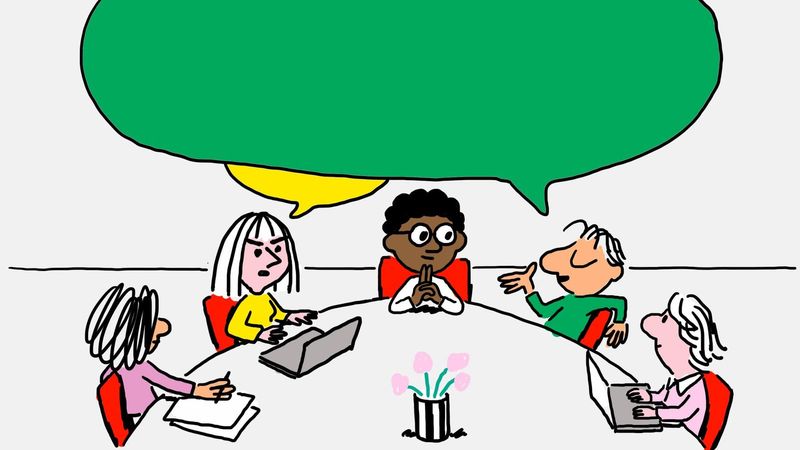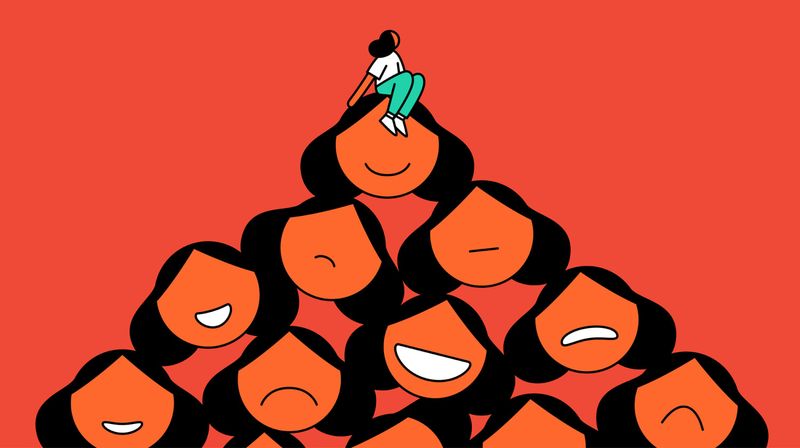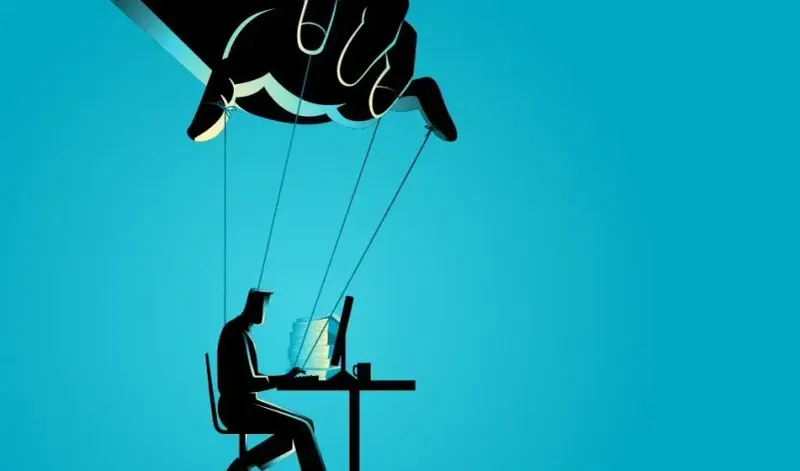16 Types Of People No One Can Stand Being Around No Matter How Much They Try
In every social circle, certain personalities can be particularly challenging to deal with. These are the types of people who often exasperate others, testing the limits of patience and understanding, no matter how tolerant or accommodating one tries to be.
Whether it’s their behavior, attitude, or the way they interact with others, these individuals often stand out for the wrong reasons. Here’s a list of 17 types of people that most find difficult to be around.
1. The Constant Complainer

The Constant Complainer never misses an opportunity to express dissatisfaction. Every situation becomes a platform for them to vocalize grievances, whether justified or not. A coffee too hot or traffic too slow, there’s always something wrong in their world. Engaging with them often feels like an emotional drain, as positivity gets overshadowed by their perpetual negativity.
Their presence can transform a sunny day into a metaphorical rainstorm, affecting those around them. Even in the best of times, they find a reason to lament, leaving others feeling helpless and frustrated. It’s not just about voicing concerns, but their inability to see solutions that makes interaction with them exhausting.
2. The Know-It-All

Always ready with unsolicited advice, the Know-It-All believes they have the answer to every question. Conversations with them often turn into lectures, as they correct others and showcase their vast, though often superficial, knowledge. This personality type can be particularly bothersome in group settings, overshadowing others’ contributions.
Their need to be right can stifle creativity and debate, leading to frustration among peers. While intelligence and resourcefulness are admirable traits, their lack of humility can alienate them from potential friendships. Often, their inability to listen and learn from others becomes their biggest downfall.
3. The Drama Queen/King

Life is a stage for the Drama Queen/King, who turns mundane events into theatrical performances. Every moment becomes an opportunity for emotional outbursts and exaggerated storytelling. Friends and acquaintances find themselves trapped in an endless cycle of crises and melodrama. While they may seem entertaining initially, their constant need for attention and sympathy can become overwhelming.
These individuals often thrive on chaos, drawing energy from the drama they create. This tendency can strain relationships, as others tire of being part of a never-ending soap opera. Finding peace around them requires distance, as their theatrics know no bounds.
4. The Gossip

With an insatiable appetite for secrets, the Gossip thrives on the latest stories about others. Offices, cafes, and social gatherings become their playground, where they spread information with little regard for truth or privacy. Their tales often come with a twist, leading to misunderstandings and conflicts. Trusting them can be risky, as friendships and reputations hang in the balance.
While curiosity about others is natural, their lack of discretion and integrity can make social interactions tense. People around them often feel wary, knowing that today’s conversation could become tomorrow’s headline. Silence becomes golden when they are nearby.
5. The Interruptor

In conversations, the Interruptor seems to have a perpetual urge to cut others off. Their eagerness to share thoughts often overrides their ability to listen, making dialogues feel one-sided. Colleagues and friends may feel undervalued, as their words are continuously truncated. This behavior can hinder productive discussions, creating an environment of frustration and resentment.
While some interruptions may stem from excitement, habitual interjecting can be perceived as disrespectful. Over time, their inability to pause and allow others to express themselves can isolate them socially. Listening is an art they often fail to master, leading to strained relationships.
6. The One-Upper

The One-Upper always has a superior tale to tell. If someone shares a vacation story, they’ve been somewhere more exotic; if someone talks about a promotion, theirs was even better. This constant need to outshine others can make social interactions tiresome. Their behavior often stems from insecurity or a desire for validation, leading them to exaggerate or embellish.
While initially impressive, their stories soon become predictable, leaving others disinterested. Rather than building connections, they create a competitive atmosphere that stifles genuine interaction. Over time, friends may distance themselves, seeking more balanced and reciprocal relationships.
7. The Chronic Latecomer

Time seems to elude the Chronic Latecomer, who is perpetually behind schedule. Whether it’s meetings, gatherings, or simple coffee dates, they consistently arrive after the appointed time. This habit can be interpreted as a lack of respect for others’ time, causing frustration and delays. While some may attribute their tardiness to poor planning, others see it as a disregard for commitments.
Despite apologies, their repeated lateness can erode trust and patience among peers. As punctuality becomes a rare occurrence, friends and colleagues may begin to plan around their tardiness, adjusting expectations to avoid disappointment.
8. The Over-Sharer

Personal boundaries seem nonexistent for the Over-Sharer. In any setting, they divulge intimate details about their life, often leaving others uncomfortable. From health issues to financial woes, no topic is too personal for discussion. While openness can foster intimacy, their lack of discretion may overwhelm acquaintances. Conversations become dominated by their narratives, leaving little room for others to contribute.
This behavior can lead to awkwardness in social settings, as boundaries are crossed and privacy is d.isregarded. Maintaining a sense of mystery and restraint is not in their repertoire, often leading to avoidance by those who value discretion.
9. The Self-Absorbed

The Self-Absorbed individual is often engrossed in their own world, with little regard for others. Conversations revolve around their achievements, feelings, and needs, leaving little room for mutual exchange. Their focus on personal gratification can overshadow empathy and connection. This self-centeredness can lead to a lack of meaningful relationships, as friends tire of the one-sided dynamic.
While confidence and self-assurance are positive traits, an inability to engage with others’ experiences can be isolating. Over time, their social circle may dwindle, as they fail to invest in the lives of those around them. Balancing self-interest with genuine interest in others remains a challenge for them.
10. The Hypocrite

The Hypocrite often fails to practice what they preach, creating a disconnect between their words and actions. This inconsistency can breed distrust and skepticism, as others struggle to reconcile their public persona with private behavior. Friends and colleagues may feel deceived, as their proclaimed values seem insincere.
The gap between their ideals and conduct can lead to tension and disappointment. While everyone is susceptible to occasional hypocrisy, their chronic inability to align beliefs with actions can be particularly grating. Building authentic connections requires integrity and transparency, qualities they often lack. Over time, their credibility deteriorates, leaving relationships strained.
11. The Needy Friend

The Needy Friend craves constant attention and validation. Their emotional demands can become overwhelming, as they rely heavily on friends for support. While everyone needs a helping hand occasionally, their incessant neediness can be exhausting. Texts and calls become frequent, with an expectation of immediate response.
This dependence can strain relationships, as others feel burdened by their continual demands. While empathy and patience are virtues, maintaining boundaries becomes essential in these interactions. Over time, their inability to self-soothe and seek balance may push friends away, seeking more reciprocal and independent connections.
12. The Humble Bragger

Under the guise of modesty, the Humble Bragger manages to highlight their accomplishments. Social media becomes a platform for veiled boasting, where achievements are shared with a touch of false humility. Their posts often start with statements like, “I’m so humbled to…” followed by a list of accolades. This approach can be irksome, as the pretension of humility masks an underlying desire for praise.
Friends and followers may see through the facade, leading to eye rolls and skepticism. While self-promotion is natural, the lack of authenticity can alienate their audience. Genuine humility requires sincerity, a trait they struggle to embody.
13. The Flake

Commitment seems elusive for the Flake, who often cancels plans at the eleventh hour. Friends are left in limbo, unsure if they can rely on their participation. While life can be unpredictable, their habitual inconsistency can lead to frustration and disappointment. Trust erodes over time, as others adjust expectations and seek more dependable companionship.
Whether due to overcommitment or lack of interest, their unreliability can strain relationships. Those who value stability may distance themselves, seeking friendships with a stronger sense of accountability. Consistency is key in maintaining trust, a lesson that often eludes them.
14. The Narcissist

The Narcissist is enamored with their own reflection, often prioritizing their needs above all else. Conversations revolve around them, with little regard for others’ perspectives. Their self-importance can overshadow empathy, making interactions feel superficial. While confidence is commendable, their inability to appreciate others can lead to isolation.
Friends and family may feel undervalued, as their contributions often go unnoticed. Building genuine connections requires reciprocity, something they struggle to achieve. Over time, their social circle may shrink, as others seek more balanced relationships. Understanding the value of humility and appreciation remains a challenge for them.
15. The Cynic

Pessimism often clouds the world of the Cynic, who approaches life with skepticism and doubt. Positivity is met with suspicion, as they search for hidden motives in acts of kindness or success. While critical thinking is valuable, their tendency to dismiss optimism can be draining. Friends may feel disheartened by their lack of enthusiasm and reluctance to embrace joy.
While realism has its place, perpetual cynicism can hinder personal growth and happiness. Over time, their negativity may push others away, as they seek companionship that nurtures rather than stifles. Encouraging a balanced outlook may help them find more fulfilling interactions.
16. The Micro-Manager

Control is the cornerstone of the Micro-Manager’s world. Delegation seems foreign, as they oversee every detail with relentless scrutiny. While attention to detail is admirable, their inability to trust others can stifle creativity and morale. Employees may feel suffocated, as their autonomy is continually undermined.
This behavior can lead to frustration and decreased productivity, as team members struggle to find their footing. While their intentions may be rooted in a desire for excellence, their execution often backfires. Building a supportive and empowering environment requires letting go, a skill they often grapple with. Encouraging independence may lead to more harmonious and successful outcomes.







